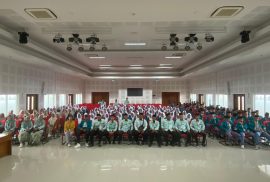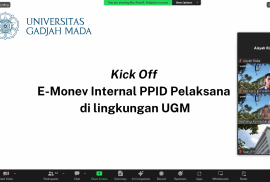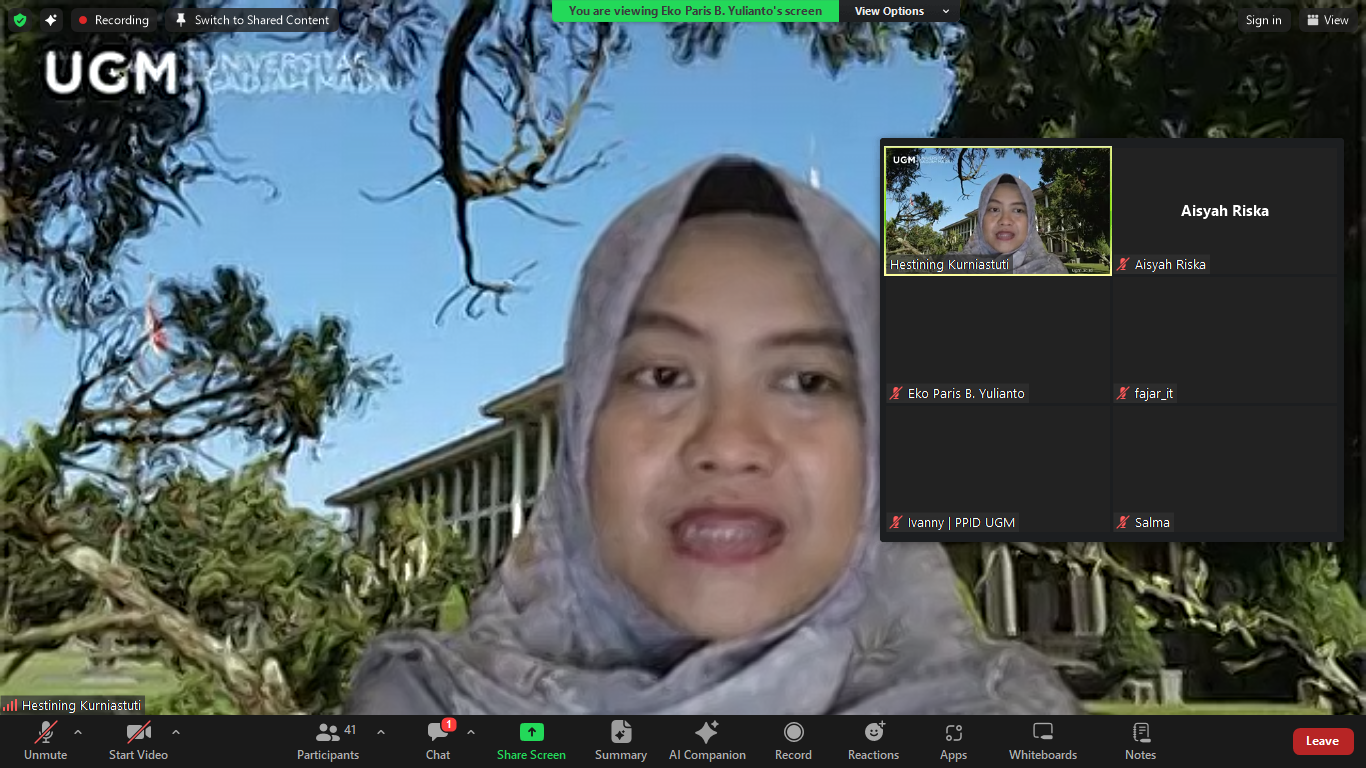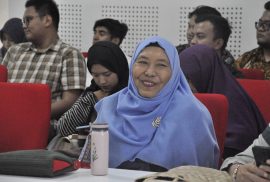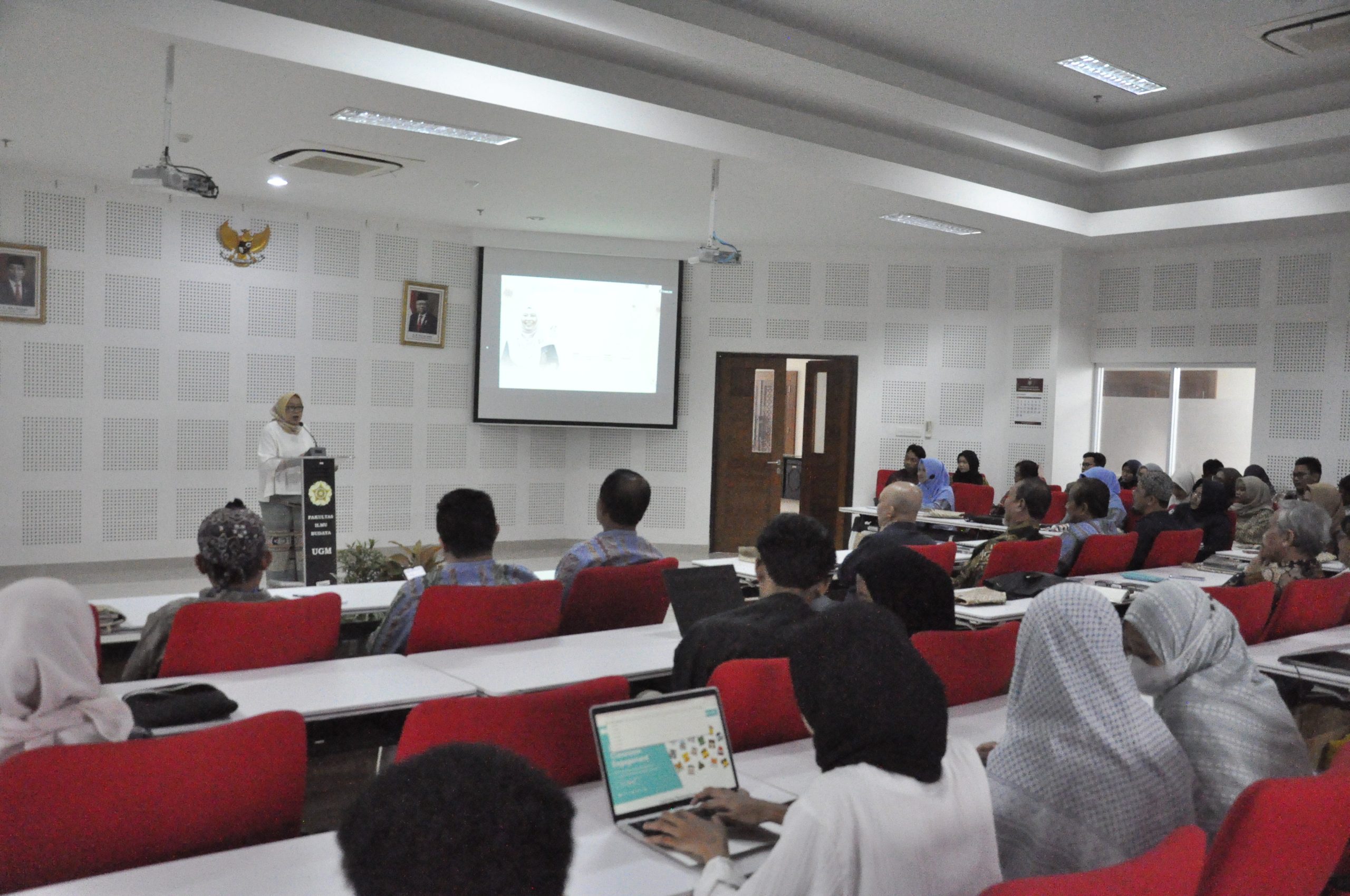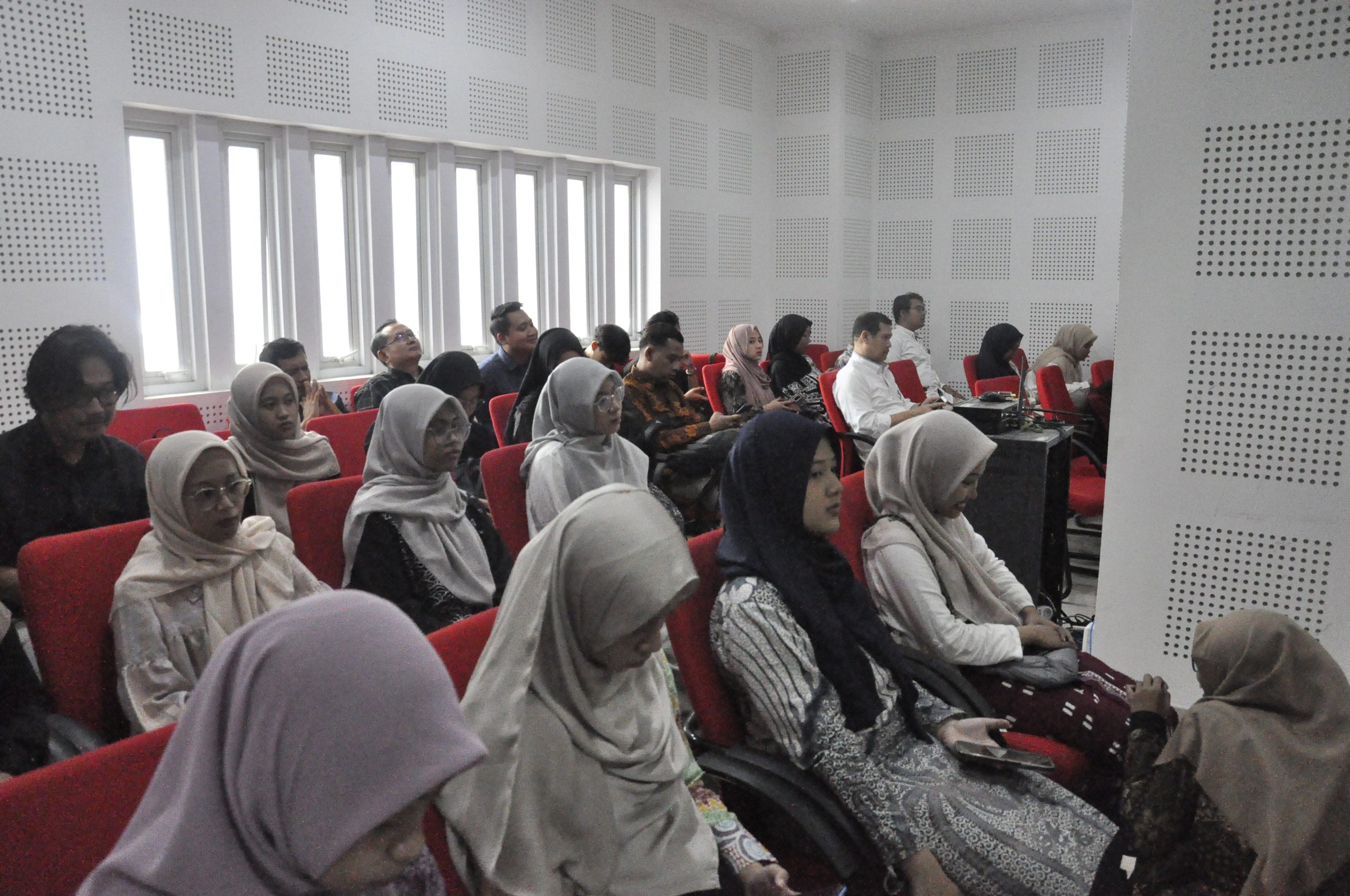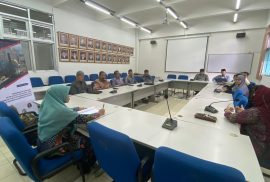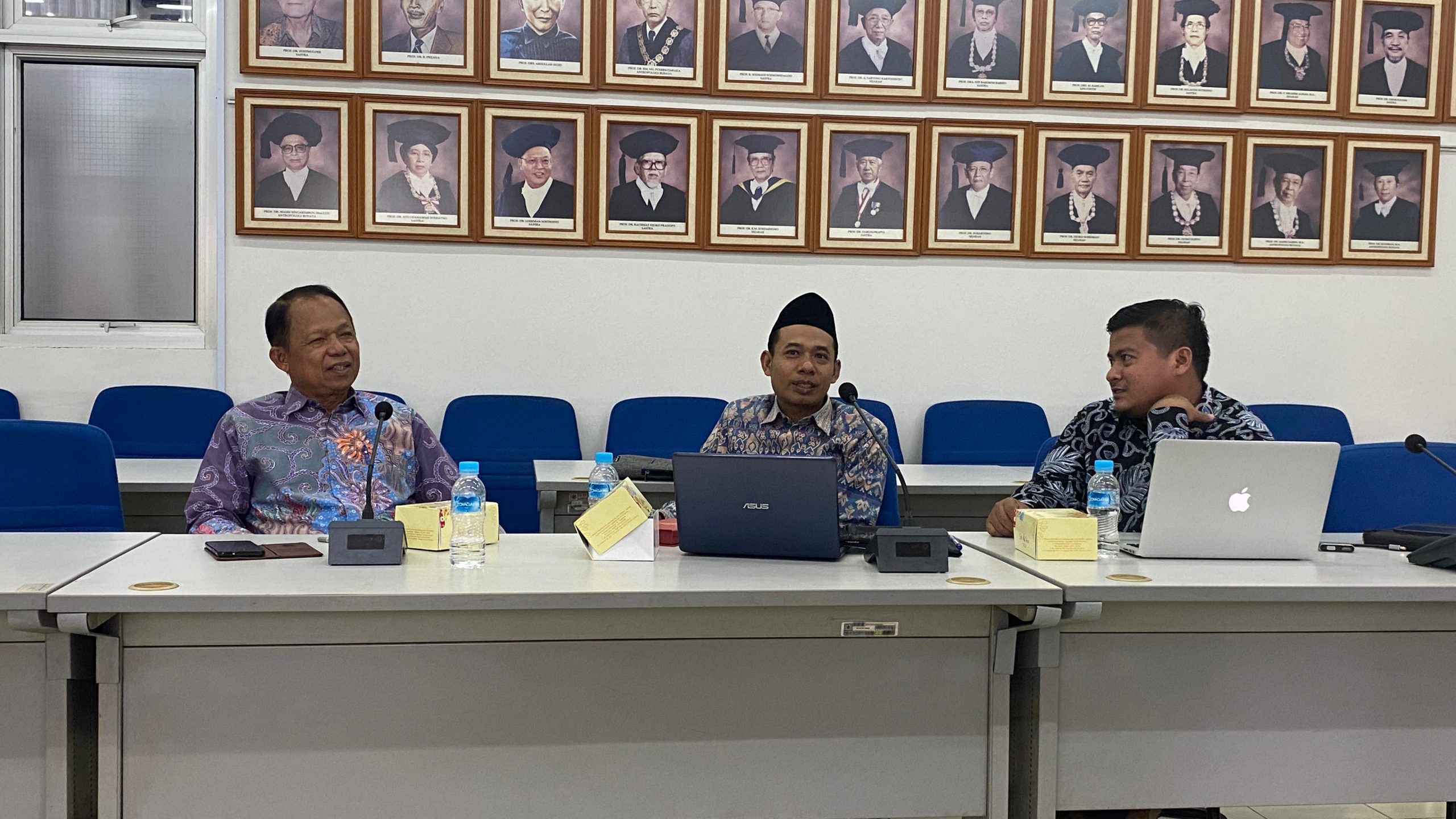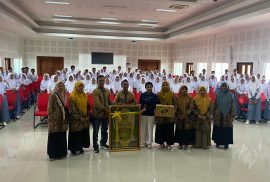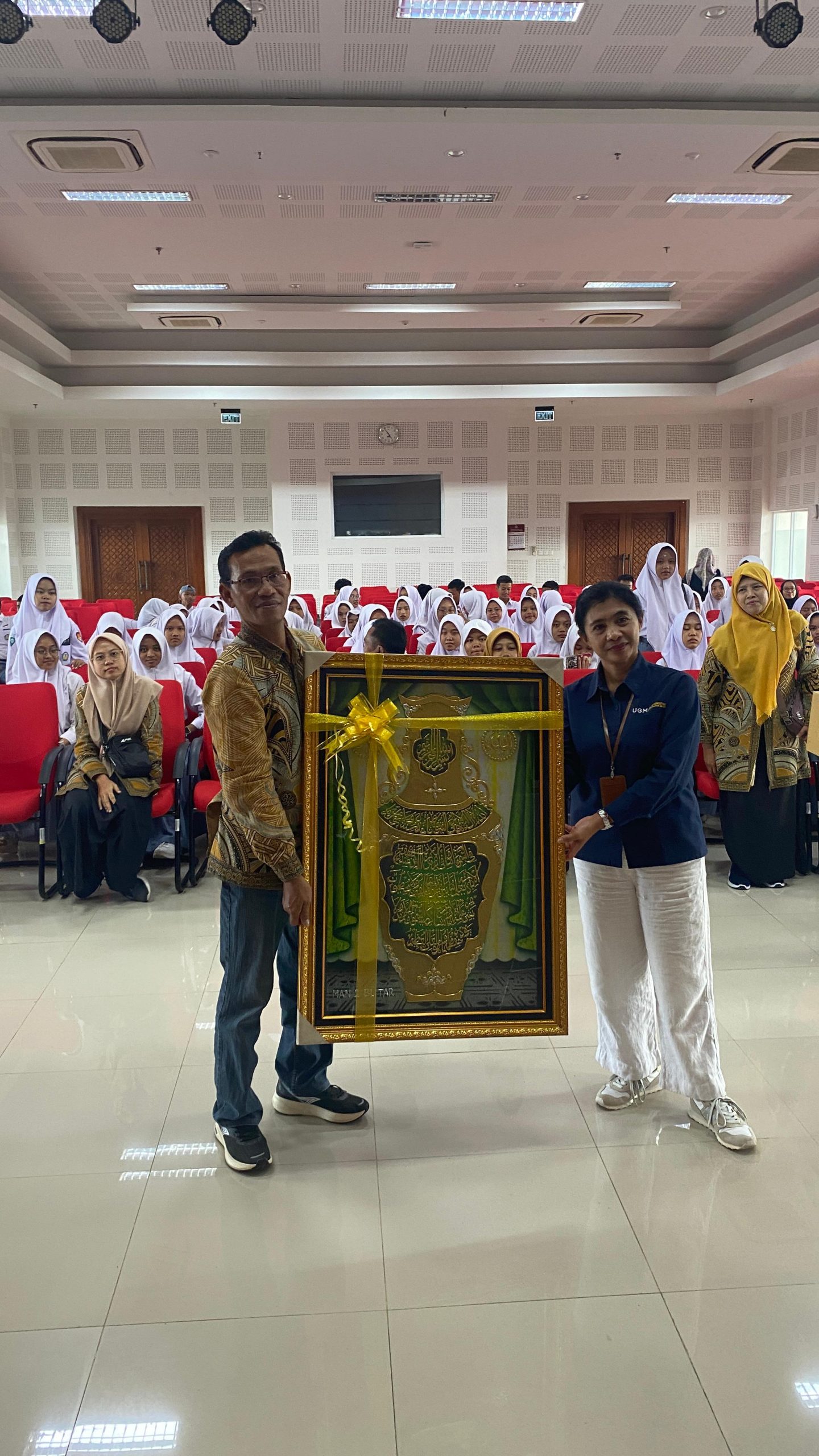Yogyakarta, September 19, 2024 – Faculty of Cultural Sciences Universitas Gadjah Mada (UGM) recently received a special visit from 11th grade students and teachers from Madrasah Aliyah Al-Amin Jember. The visit took place in the auditorium of Soegondo Building 7th floor, and was attended by more than 200 participants. During the discussion, some of the most favorite majors were highlighted by the students. Students are also invited to understand the Merdeka Belajar Kampus Merdeka (MBKM) program which provides opportunities for students to explore various fields and learning experiences outside the classroom.
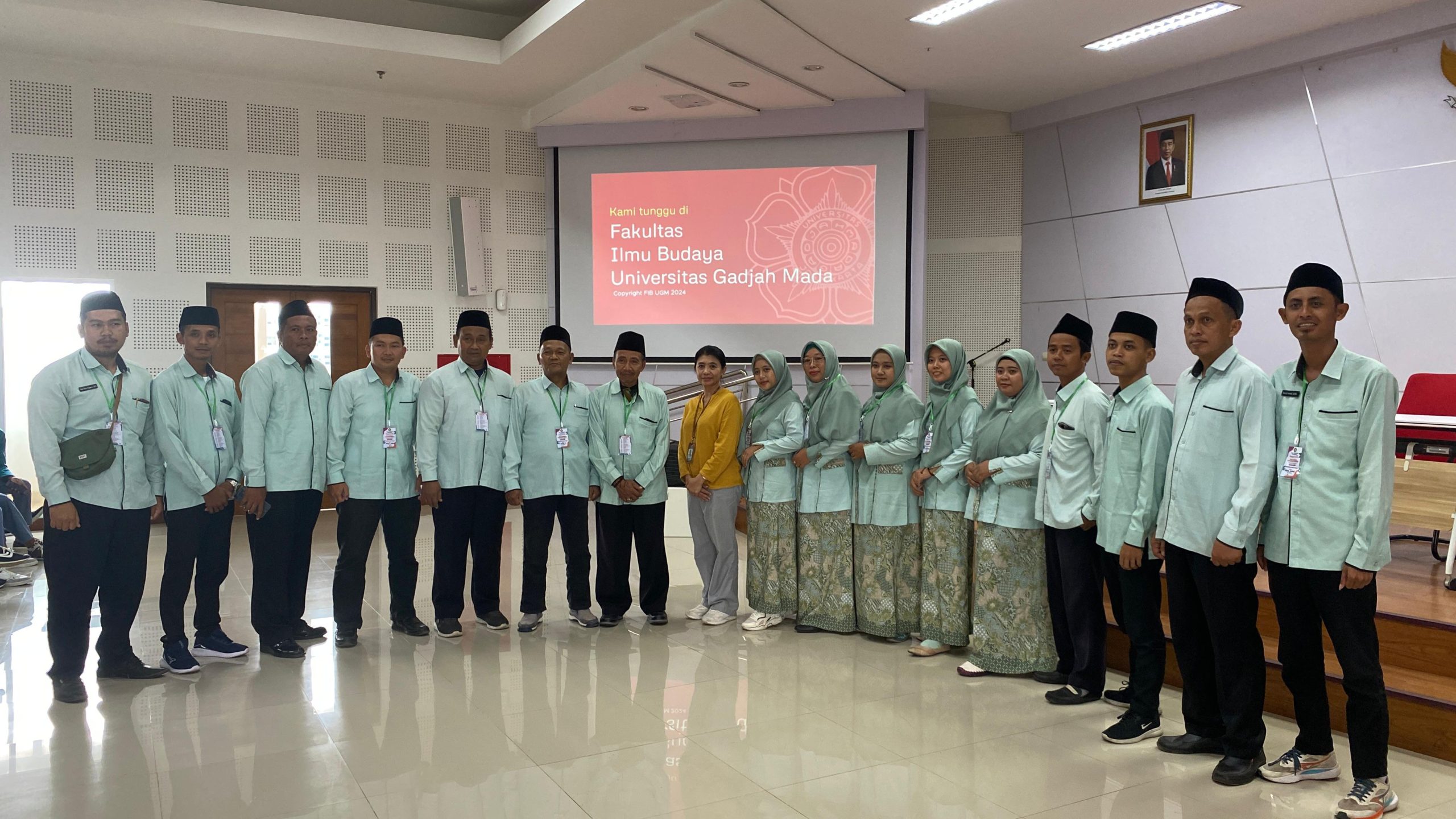
One of the important topics discussed was the SKS (Semester Credit System) system at the Faculty of Cultural Sciences. Students are given the freedom to take courses across faculties, which allows them to broaden their horizons and skills. This is expected to help students in preparing themselves to face challenges in the world of work. In addition, an in-depth discussion session on cultural preservation was also high on the agenda. The students dialogue with FIB UGM students on strategies to address cultural fading through education, focusing on the role of educational institutions in strengthening cultural identity.
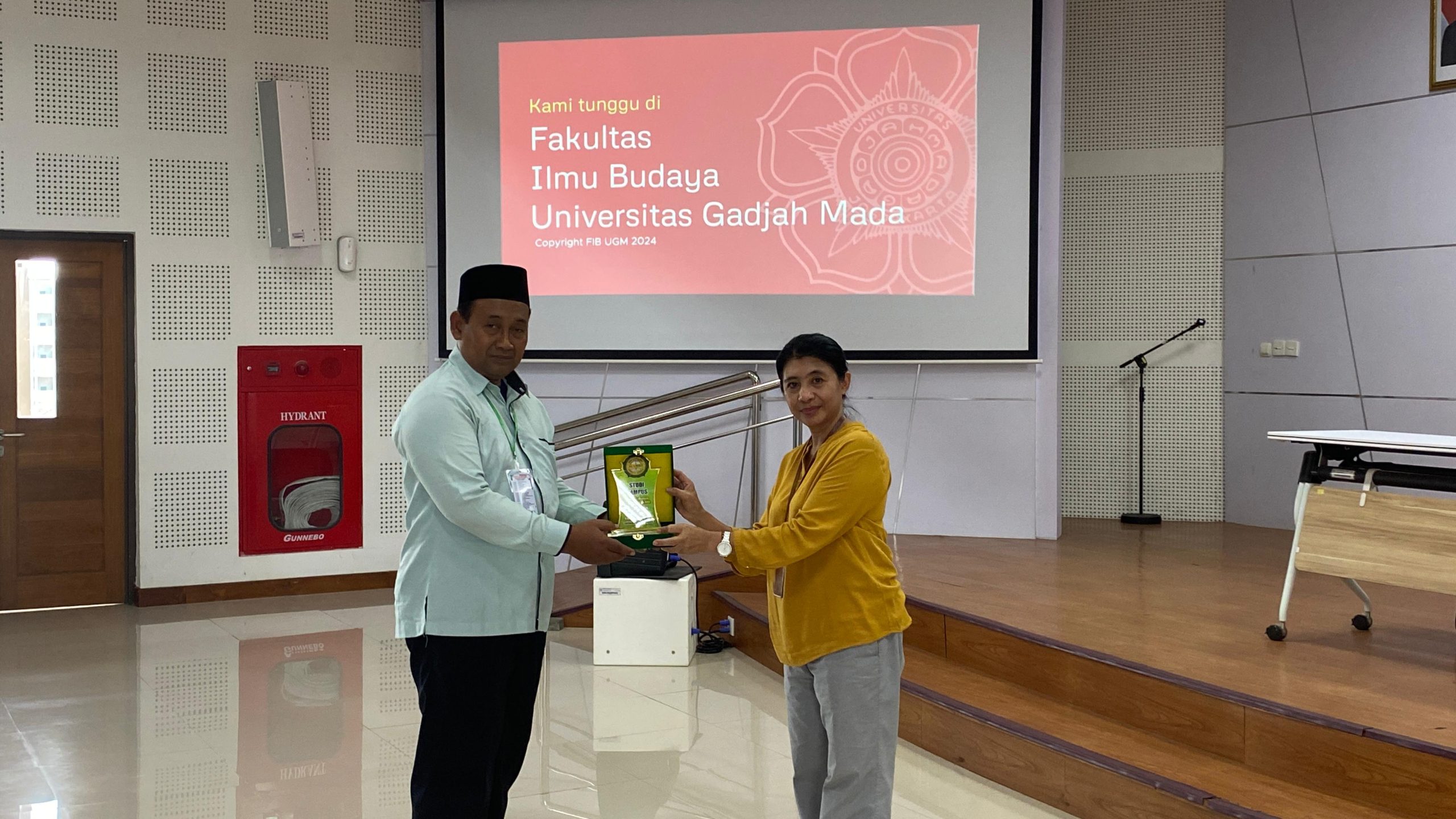
This visit not only provided information about Universitas Gadjah Mada & Faculty of Cultural Sciences, but also encouraged participants to be more active in preserving culture and utilizing existing educational opportunities. Hopefully, this activity can strengthen the relationship between UGM and MA Al-Amin Jember and open up opportunities for future cooperation. With the spirit of collaboration, the Faculty of Cultural Sciences UGM is committed to continuing to contribute to the development of education and cultural preservation in Indonesia.

